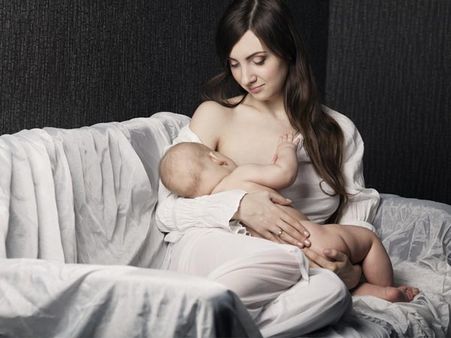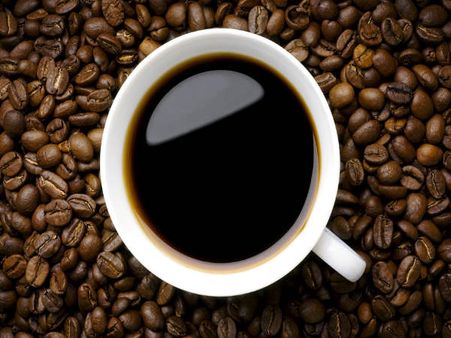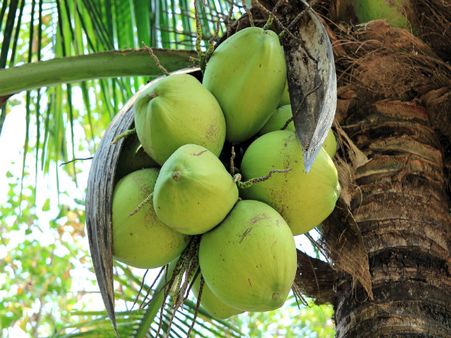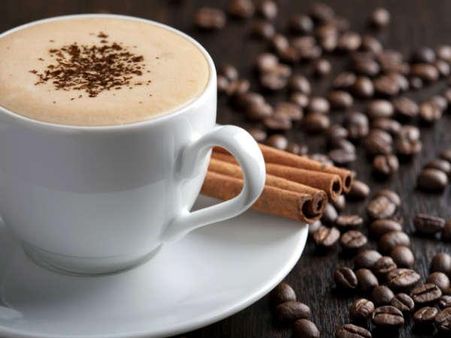Just In
- 13 min ago

- 3 hrs ago

- 4 hrs ago

- 9 hrs ago

Don't Miss
- Finance
 1:3 Bonus Share, Rs 13.25/Share Dividend: Buy Maharatna PSU, TP Rs 355, Fundraise Approved
1:3 Bonus Share, Rs 13.25/Share Dividend: Buy Maharatna PSU, TP Rs 355, Fundraise Approved - Sports
 Who Won Yesterday's IPL Match 33? PBKS vs MI, IPL 2024 on April 17: Mumbai Indians Escape Last-Ditched Fight by Punjab Kings To Win
Who Won Yesterday's IPL Match 33? PBKS vs MI, IPL 2024 on April 17: Mumbai Indians Escape Last-Ditched Fight by Punjab Kings To Win - Movies
 Do Aur Do Pyaar OTT Release Date & Platform: When & Where To Watch Vidya Balan’s Film After Theatrical Run?
Do Aur Do Pyaar OTT Release Date & Platform: When & Where To Watch Vidya Balan’s Film After Theatrical Run? - News
 BRS Chief K Chandrasekhar Rao Slams BJP, Says K Kavitha's Arrest Is Vendetta Politics
BRS Chief K Chandrasekhar Rao Slams BJP, Says K Kavitha's Arrest Is Vendetta Politics - Automobiles
 Aprilia RS 457 Accessories: A Detailed Look At The Prices
Aprilia RS 457 Accessories: A Detailed Look At The Prices - Education
 Karnataka SSLC Result 2024 Soon, Know How to Check Through Website, SMS and Digilocker
Karnataka SSLC Result 2024 Soon, Know How to Check Through Website, SMS and Digilocker - Technology
 Nothing Ear, Ear a With ANC, Up to 42.5 Hours of Battery Launched; Check Price and Availability
Nothing Ear, Ear a With ANC, Up to 42.5 Hours of Battery Launched; Check Price and Availability - Travel
Telangana's Waterfall: A Serene Escape Into Nature's Marvels
Caffeine During Breastfeeding: Is It Bad?
Is it okay to consume caffeine while breastfeeding? Read this to know.
When pregnant, all the new mothers-to-be take care of their diet. They make sure that they do not consume something that would harm their baby who is growing inside them. The same holds true when a mother breastfeeds her baby.
When your baby is in your womb, he/she depends on you for nutrition and care. Likewise, when you breastfeed, your baby is completely dependent on you for nutrition, especially if you are exclusively breastfeeding.
If you are breastfeeding, it should not come as a surprise that what you eat reaches your baby too. It is believed that a percentage of whatever you eat goes into the bloodstream and about one percent of it goes into the breast milk.
When you feed your baby, he/she can taste the spices, sweetness and other tastes of the food you have consumed. It is said that if you eat healthy while pregnant and breastfeeding, the baby will also take a liking to healthy food when he/she grows up.
Caffeine is a substance that is potentially harmful for your baby. Doctors recommend that the consumption of caffeine be avoided or at least be reduced while pregnant and breastfeeding.

For most parents, a cup of coffee, tea or a cold can of aerated cola is a godsend when they try to relax. Abstaining from caffeinated drinks might not be easy.
We have made a list of facts that tell you more about caffeine and its consumption during breastfeeding. Read it to know more and you can adjust your caffeine-related habits accordingly.

How Harmful Is Caffeine For Babies?
The effects of caffeine on babies may differ according to the baby's sensitivity to it. Some babies show no reactions to it, while even a small amount will cause a lot of troubles for some others.
Basically, a baby's body is not developed enough to get rid of the caffeine. So, when the breast milk has a certain amount of caffeine, it builds up in the body of the baby.
The caffeine build-up causes the baby to be wakeful and irritable. The baby may also show hyperactivity and restlessness.

How Much Caffeine Is Safe For A Baby?
It is normal for a mother to feel tired after delivery. The days that follow are also sure to be hectic and tiresome. It is okay to crave for your favourite caffeinated drink.
The recommended amount of caffeine is 300 grams a day. This is equal to 6 cups of tea or coffee and 7 cans of aerated cola. If your baby shows any kind of a reaction to this amount of caffeine in your daily diet, try and cut back a few cups.
If the trouble still persists, you may want to eliminate caffeine from your diet completely.

What Are The Alternatives Of Caffeine And Caffeinated Drinks?
You can choose non-caffeinated drinks like milk, coconut water, lime juice and fruit juices. Even if you do consume caffeine, you can try and drink a lot of water to flush out the caffeine from your body efficiently.
There are decaffeinated options available for both tea and coffee as well. While herbal teas seem like a good option, some of these do contain caffeine. Be sure to check them well before you consume them.

What Are The Amounts Of Caffeine Found In The Most Commonly Used Food Items And Drinks?
The following is a list of the most common caffeinated foods and the amount of caffeine in them. Please note that the amount given is for one unit and may vary with the quantity of the food.
1.
Brewed
coffee
-
200
mg
2.
Espresso
-
90
mg
3.
Instant
coffee
-
173
mg
4.
Decaffeinated
coffee
-
12
mg
5.
Brewed
tea
-
75
mg
6.
Iced
tea
-
40
mg
7.
Instant
tea
-
30
mg
8.
Cola
-56
mg
9.
Diet
cola
-
64
mg
10.
Chocolate
-
50
mg
-
 yoga spiritualityEid Ul Fitr 2024: 50 Modern Muslim Baby Boy Names Born On Eid With Meaning
yoga spiritualityEid Ul Fitr 2024: 50 Modern Muslim Baby Boy Names Born On Eid With Meaning -
 healthIn China, Infant Is Born With Four-Inch Tail Growing from Its Buttocks, Know The Reason Behind This
healthIn China, Infant Is Born With Four-Inch Tail Growing from Its Buttocks, Know The Reason Behind This -
 fashionRaha Kapoor Twins With Mommy Alia Bhatt At Ambani Pre-Wedding Bash, 7 Tips To Match Outfits With Your Baby
fashionRaha Kapoor Twins With Mommy Alia Bhatt At Ambani Pre-Wedding Bash, 7 Tips To Match Outfits With Your Baby -
 beautyFrom Pigtails To Messy Curls, 7 Trendy Hairstyles Generated By AI For Your Little Fashionista
beautyFrom Pigtails To Messy Curls, 7 Trendy Hairstyles Generated By AI For Your Little Fashionista -
 healthExclusive: Doctor Shares How There Is Rise Of Muhurat Deliveries Aligned With Ram Mandir Consecration
healthExclusive: Doctor Shares How There Is Rise Of Muhurat Deliveries Aligned With Ram Mandir Consecration -
 fashionNew Born Baby Photoshoot Ideas Interpreted By AI, 7 Tips To Make This Cute Session Memorable
fashionNew Born Baby Photoshoot Ideas Interpreted By AI, 7 Tips To Make This Cute Session Memorable -
 fashionYear Ender 2023: Baby Clothing Trends That Will Dominate The Little One's Wardrobe In 2024
fashionYear Ender 2023: Baby Clothing Trends That Will Dominate The Little One's Wardrobe In 2024 -
 insync50 Lord Krishna Names For Baby Boy That Will Bless Your Child With Divine Qualities
insync50 Lord Krishna Names For Baby Boy That Will Bless Your Child With Divine Qualities -
 pregnancy parentingTwo Wombs, Four Hearts: US Mom's Extraordinary Double Uterus Pregnancy
pregnancy parentingTwo Wombs, Four Hearts: US Mom's Extraordinary Double Uterus Pregnancy -
 pregnancy parentingDelhi Air Pollution: Pregnant Women Must Follow These 4 Things!
pregnancy parentingDelhi Air Pollution: Pregnant Women Must Follow These 4 Things! -
 home n gardenHappy Birthday Raha Kapoor: From Customized Wall Art To Figurine Hooks, 8 Ideas To Decorate Your Baby's Room
home n gardenHappy Birthday Raha Kapoor: From Customized Wall Art To Figurine Hooks, 8 Ideas To Decorate Your Baby's Room -
 pregnancy parentingExpert Opinion On Breastfeeding: How It Will Help Baby And Mother
pregnancy parentingExpert Opinion On Breastfeeding: How It Will Help Baby And Mother


 Click it and Unblock the Notifications
Click it and Unblock the Notifications






